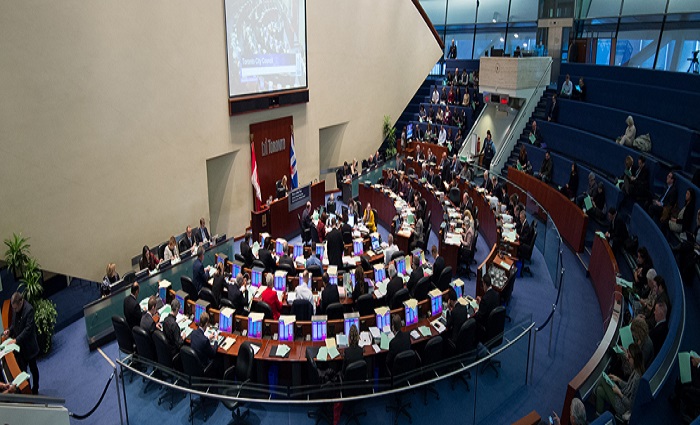The Province of Ontario boasts 444 municipalities, including the City of Toronto, which provide critical services for people in Ontario.
On August 14, as an elected representative, I voted in favor of Bill 5 – Better Local Government Act. Our goal as government was clear then, and we remain committed to that same goal today: to have Toronto, which is Ontario’s largest municipality and a major economic engine for both the province and the country, move away from a dysfunctional council system, a broken system that has difficulty with decision-making, a broken system that gets very little done.
Toronto residents deserve an efficient council that gets things done on big issues like transit, infrastructure and housing.
Having 47 Toronto councilors in one room is dysfunctional. For example, after days of debate at the committee level, city council took 15 hours to pass its 2017 budget – 15 hours of going back and forth and back and forth on a document that was already nearly set in stone, 15 hours to express opinions expressed numerous times before on the record. And after all that, council passed a budget that created a $2-million budget hole that meant it had to hastily draw from a reserve fund.
Over a month ago, we passed Bill 5 as an answer to the unacceptable public policy stalemates at Toronto city hall. However, due to a ruling by a Superior Court of Justice, we made a decision to replace Bill 5 with new legislation. However, on September 19, we received news the Ontario Court of Appeal concluded, “…there is a strong likelihood that the application judge erred in law and that the attorney general’s appeal to this court will succeed.” The court of appeal’s tentative conclusion was that, “Bill 5 does not suffer from constitutional infirmity.”
Read Court Document- Ontario Appeal Court Sides With Ford Government
Our government concurs with the Stay, which goes on to recognize the change voted in by Bill 5 is undoubtedly frustrating for candidates who are campaigning in 25-ward boundaries. However, the frustration is not enough to persuade that there is substantial interference with their freedom of expression.
The inconvenience candidates will experience because of the change from 47 to 25 wards does not prevent or impede them from speaking their mind about the issues arising in the election. The Stay indicates candidates have no constitutionally guaranteed right to the 47-ward system, and Bill 5 does not deprive them of their constitutional right to speak on civic issues.
Over the summer, there has been much debate and many views expressed, including many former politicians. Christy Clark, the former Premier of British Columbia, has expressed support for our legislation. She said people all across Canada, not just in Toronto, are wondering why governments can’t move things faster.
Former Premier of Saskatchewan Brad Wall understands why we need to act and to be able to use the legal tools that are available to us.
Similarly, Former Premier of Quebec Jean Charest pointed out that the political gridlock and dysfunction at Toronto city hall is known far and wide.
With the date of the municipal election rapidly approaching, we need to take action – October 22 is just a few weeks away – to provide greater certainty for everyone and to ensure the election in Toronto proceeds. For the Silo, Haldimand-Norfolk MPP Toby Barrett.

